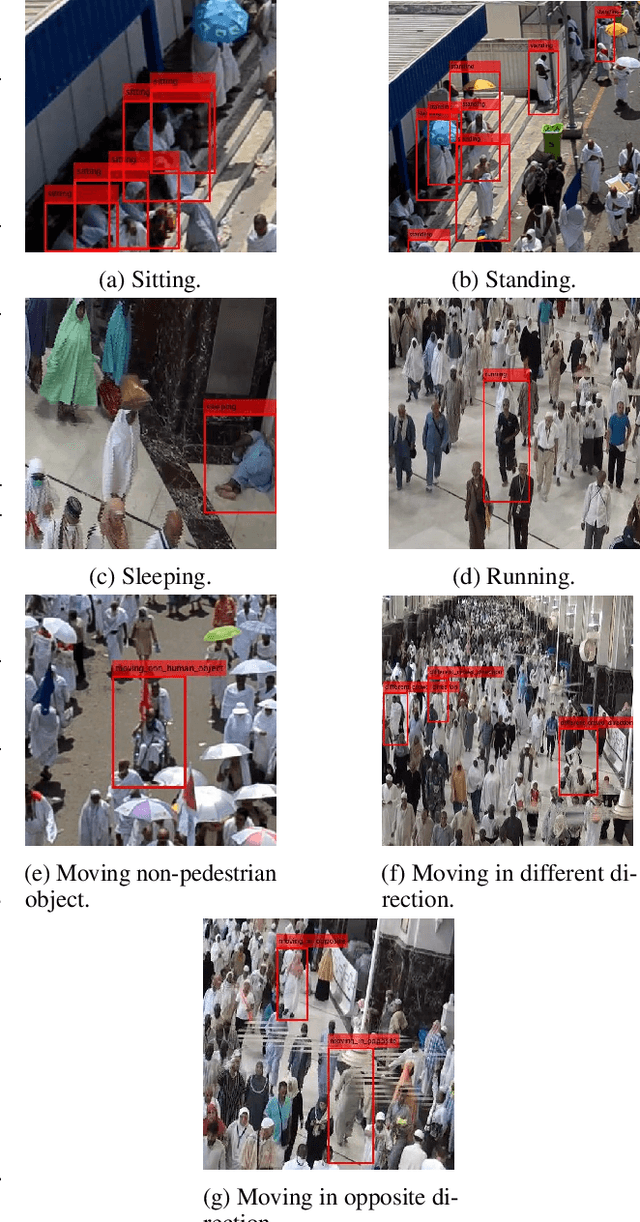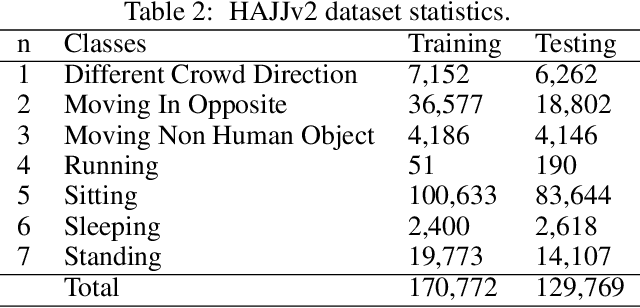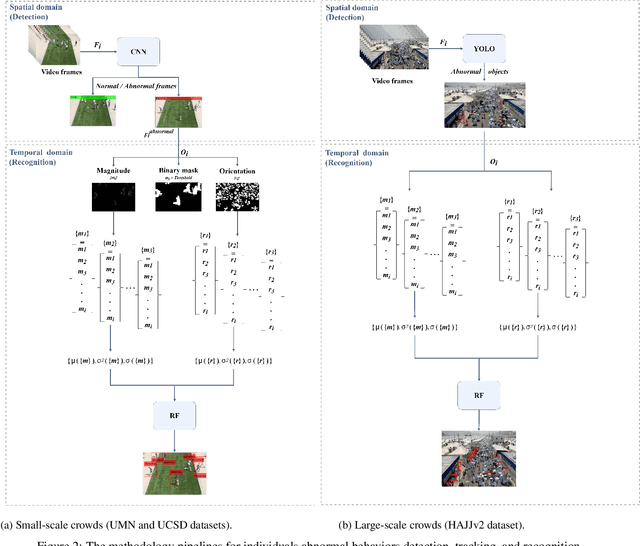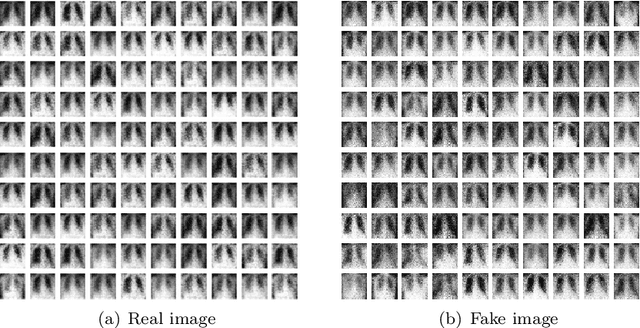Ahmed Barnawi
Hybrid Classifiers for Spatio-temporal Real-time Abnormal Behaviors Detection, Tracking, and Recognition in Massive Hajj Crowds
Jul 25, 2022



Abstract:Individual abnormal behaviors vary depending on crowd sizes, contexts, and scenes. Challenges such as partial occlusions, blurring, large-number abnormal behavior, and camera viewing occur in large-scale crowds when detecting, tracking, and recognizing individuals with abnormal behaviors. In this paper, our contribution is twofold. First, we introduce an annotated and labeled large-scale crowd abnormal behaviors Hajj dataset (HAJJv2). Second, we propose two methods of hybrid Convolutional Neural Networks (CNNs) and Random Forests (RFs) to detect and recognize Spatio-temporal abnormal behaviors in small and large-scales crowd videos. In small-scale crowd videos, a ResNet-50 pre-trained CNN model is fine-tuned to verify whether every frame is normal or abnormal in the spatial domain. If anomalous behaviors are observed, a motion-based individuals detection method based on the magnitudes and orientations of Horn-Schunck optical flow is used to locate and track individuals with abnormal behaviors. A Kalman filter is employed in large-scale crowd videos to predict and track the detected individuals in the subsequent frames. Then, means, variances, and standard deviations statistical features are computed and fed to the RF to classify individuals with abnormal behaviors in the temporal domain. In large-scale crowds, we fine-tune the ResNet-50 model using YOLOv2 object detection technique to detect individuals with abnormal behaviors in the spatial domain.
FedDPGAN: Federated Differentially Private Generative Adversarial Networks Framework for the Detection of COVID-19 Pneumonia
Apr 26, 2021



Abstract:Existing deep learning technologies generally learn the features of chest X-ray data generated by Generative Adversarial Networks (GAN) to diagnose COVID-19 pneumonia. However, the above methods have a critical challenge: data privacy. GAN will leak the semantic information of the training data which can be used to reconstruct the training samples by attackers, thereby this method will leak the privacy of the patient. Furthermore, for this reason that is the limitation of the training data sample, different hospitals jointly train the model through data sharing, which will also cause the privacy leakage. To solve this problem, we adopt the Federated Learning (FL) frame-work which is a new technique being used to protect the data privacy. Under the FL framework and Differentially Private thinking, we propose a FederatedDifferentially Private Generative Adversarial Network (FedDPGAN) to detectCOVID-19 pneumonia for sustainable smart cities. Specifically, we use DP-GAN to privately generate diverse patient data in which differential privacy technology is introduced to make sure the privacy protection of the semantic information of training dataset. Furthermore, we leverage FL to allow hospitals to collaboratively train COVID-19 models without sharing the original data. Under Independent and Identically Distributed (IID) and non-IID settings, The evaluation of the proposed model is on three types of chest X-ray (CXR) images dataset (COVID-19, normal, and normal pneumonia). A large number of the truthful reports make the verification of our model can effectively diagnose COVID-19 without compromising privacy.
 Add to Chrome
Add to Chrome Add to Firefox
Add to Firefox Add to Edge
Add to Edge